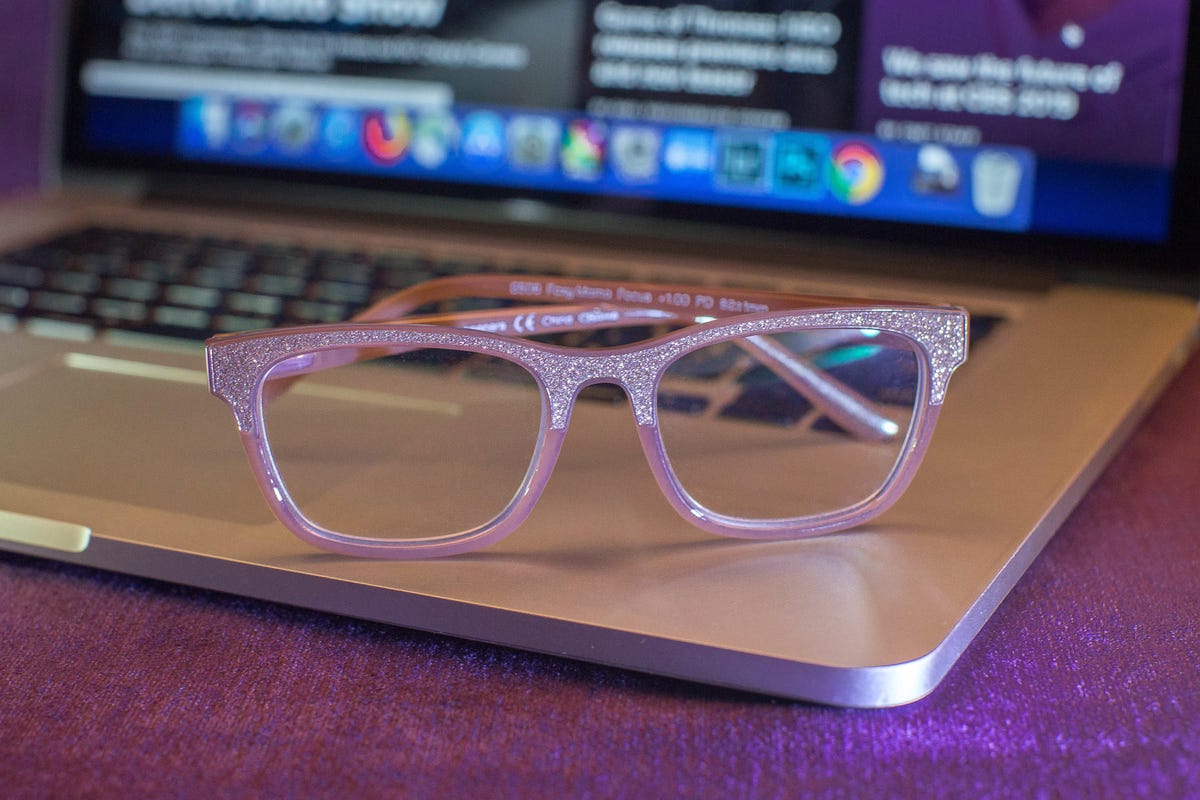Remote employees spend an average of 13 hours a day in front of a computer screen. Considering that we sleep for eight hours, that leaves us with 16 waking hours a day, meaning that 81% of the time we are awake, we’re glued to a screen.
All of that screen time seems to come with various ill effects on our bodies and minds, such as eye strain, headaches and insomnia. To combat those problems, you can pick up a pair of computer glasses — also called blue-light-blocking glasses — which promise everything from eliminating eye strain to helping you sleep better.
Once hard to find, there are now plenty of stylish options from companies like Felix Gray and Peepers. You can get blue light blocking lenses for your prescription glasses, too.
So do blue-light-blocking glasses actually make a difference for those of us who stare at a screen eight or more hours per day? The answer isn’t as straightforward as yes or no.
Read more: Best Blue-Light-Blocking Glasses
Is staring at a screen for hours each day bad?
The short answer? Probably.
Doctors and researchers are largely focused on two issues that arise from our ever-growing screen time: digital eye strain and blue-light exposure.
According to the American Optometric Association, digital eye strain is “a group of eye- and vision-related problems that result from prolonged computer, tablet, e-reader and cell phone use.” Those issues range from blurry vision and dry eyes to headaches and neck pain.
By staring at screens all day, we’re also exposed to blue light waves, which are said to cause a myriad of issues. There is conflicting evidence about how blue-light exposure affects your eyes, but doctors and researchers agree that it does affect your circadian rhythm. More on that below.

Peeper’s blue-light-blocking glasses.
Talking to CNET, Dr. Raj Maturi, a clinical spokesperson for the American Academy of Ophthalmology, explained, “During the day, you get 10 times as much blue light from the sun as you do from your computer screen. Our bodies have evolved to deal with this light.”
Research compiled by the AOA indicates that prolonged exposure to blue light (such as sitting in front of a computer all day) might cause damage to your retina — the innermost layer of your eye that sends signals to your brain to process what you are seeing.
Prevent Blindness, a nonprofit dedicated to mitigating vision loss, also says that early research suggests that blue light can contribute to eye strain.
What are blue-light-blocking glasses?
Blue-light-blocking glasses have filters in their lenses that block or absorb blue light, and in some cases UV light, from getting through. That means if you use these glasses when looking at a screen, especially after dark, they can help reduce exposure to blue light waves that can keep you awake.
Many blue-light-blocking glasses you can buy also claim to help reduce eye strain.
Most are meant to be worn during the day while working in front of a computer, and at night to prevent the blue light from screens from keeping us awake.
Should I get blue-light-blocking glasses?
It depends — do you want or need to look at your phone after dark, and then have trouble falling asleep?
There is ample evidence that blue light affects when our bodies create melatonin, so if you use screens long after sundown, these glasses might help stop you from staying up later than you want.
If you deal with digital eye strain, there is an easy exercise you should try before you invest in new glasses. Use the 20-20-20 rule: every 20 minutes, look at something at least 20 feet away for 20 seconds.
The idea is that this helps break your focus from your screen, allowing your eye muscles to relax and stave off eye strain.
As for me, I’m writing this article wearing a pair of blue-light-blocking glasses that I’ve used off and on for the last few months. While I’m not 100% certain that they are helping my eyes, I do notice my eyes feel less tired at the end of the day.
Could it be a placebo? Sure, but I’ll keep wearing them to find out.
Read more: Best Places to Buy Replacement Prescription Lenses Online


